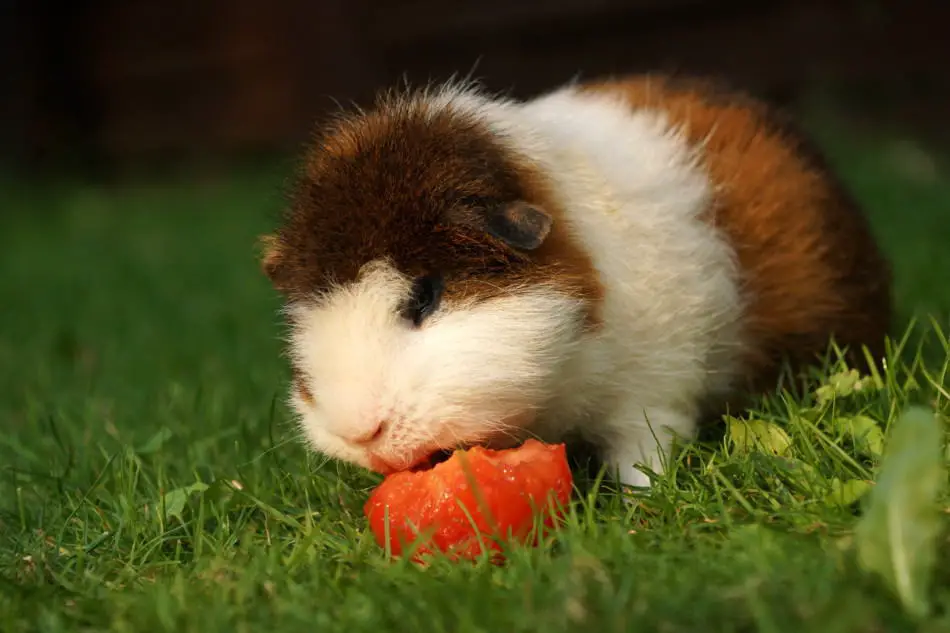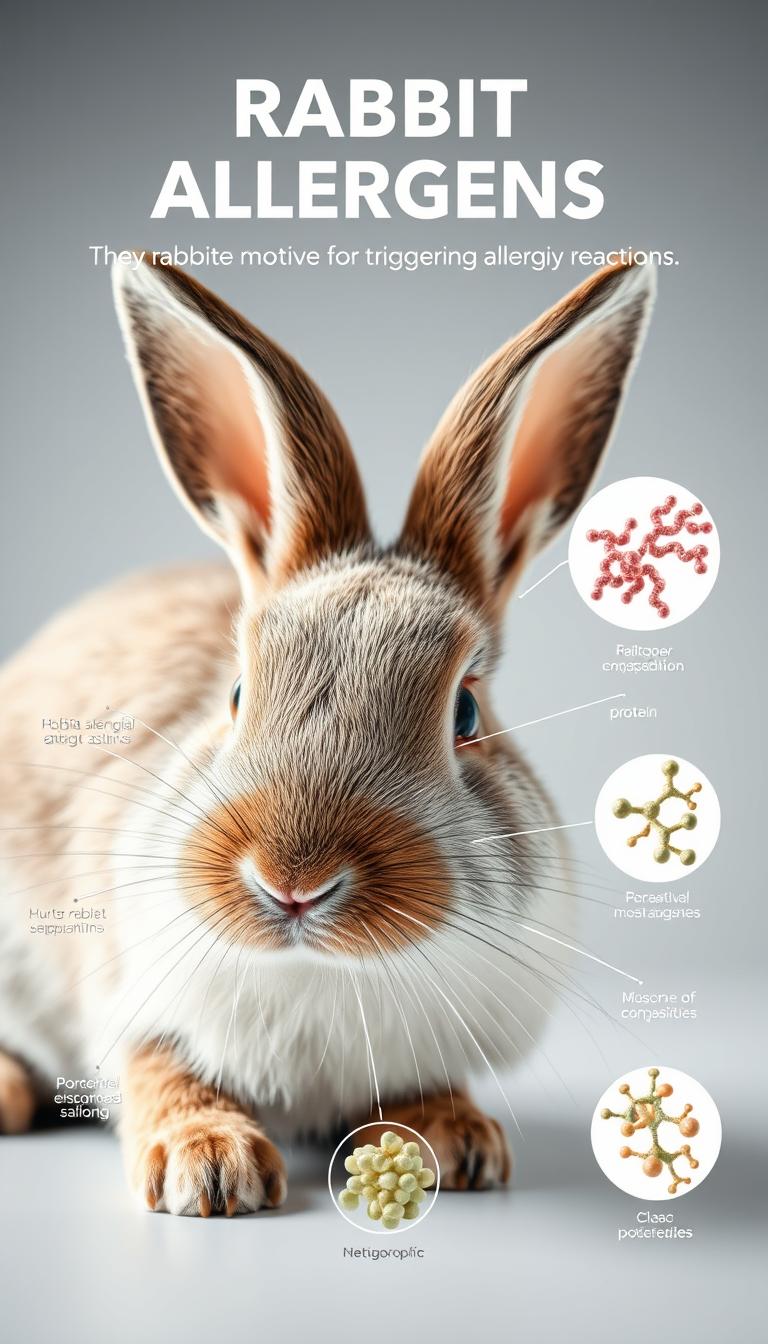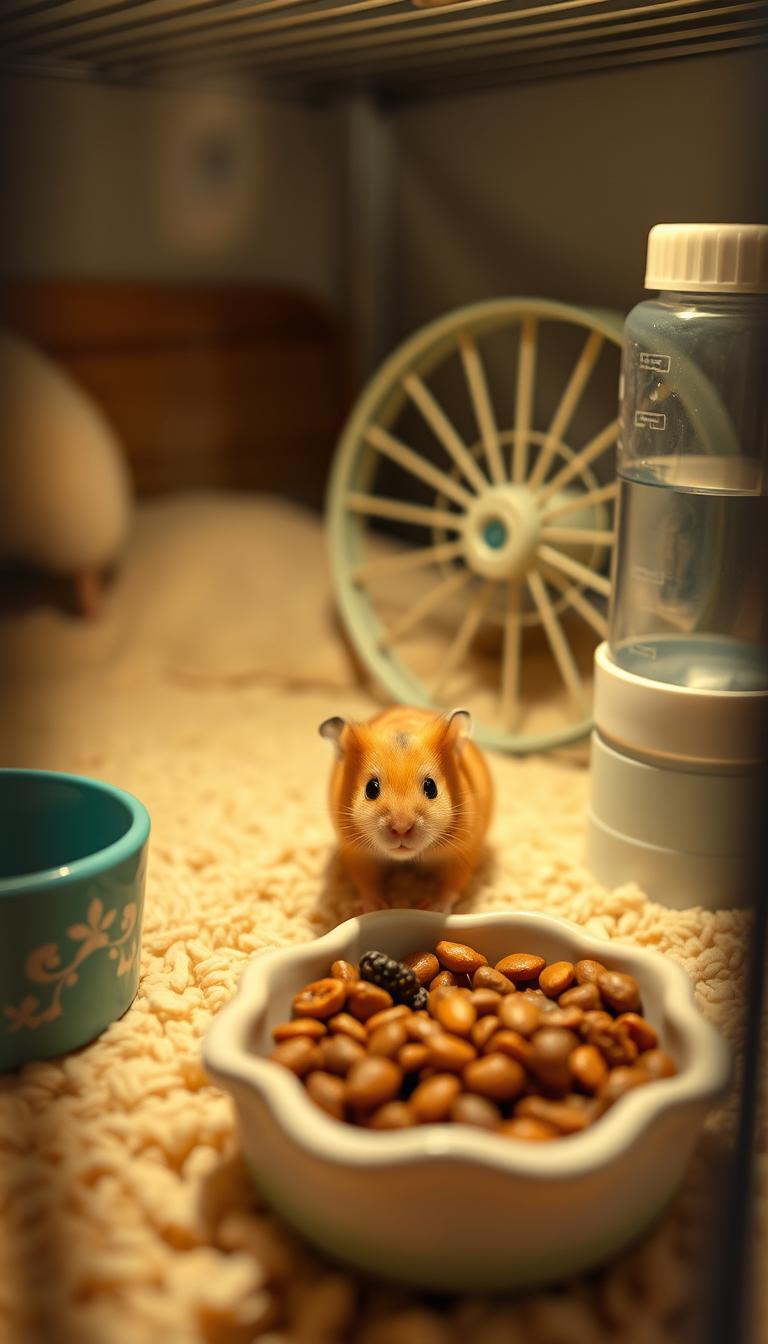Can guinea pigs eat tomatoes? This simple vegetable is one of the main ingredients of all our culinary preparations and accompaniments, becoming the most consumed food in the world only behind the potatoes. That is when the doubt arises: if it is so delicious and healthy for human beings, it can also become so for our pets?
The answer is simple, of course, it is. Moreover, according to which animal, it is not only good to eat them but really necessary.
Can Guinea Pigs Eat Tomatoes? Tomatoes stand out for their high concentration of vitamin C, approximately 15 mg per 100 grams. Vitamin C has as its main function to strengthen our defenses, in addition to preventing possible cardiovascular diseases and strengthening the teeth. Tomatoes can and should be given to guinea pigs as a supplement food.
Although we can feed them any tomato, we must make sure that the tomato leaves are well removed, as they are very toxic.
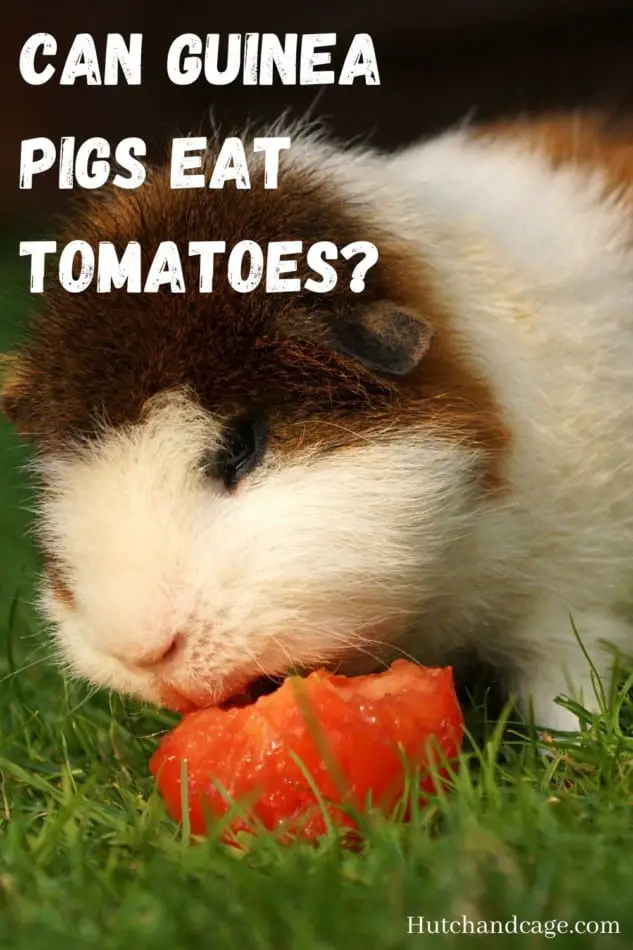
On the other hand, whenever we buy tomatoes we must thoroughly wash before consumption, whether for them or for us, supermarket tomatoes have been exposed to chemicals that could harm our health.
Well, now that you know your furry little one can eat tomatoes, you don’t want to know more about all the properties and benefits they have? Below we will explain in detail all the nutrients of the tomatoes, how to serve them, and how to start eating them regularly can help them to improve your health. Take note!
Table of Contents
Tomatoes make an ideal diet supplement
Eighty percent of the guinea pigs diet is composed of hay, which is right and necessary, but not enough. Hay is the basis of their diet, keeps them fed and provides them with all the essentials that a rodent needs to survive and digest, but does not provide them with vitamins or essential nutrients that strengthen their immune system or other vital organs.
It is common knowledge that we must consume fruits and vegetables daily to ensure that our health is optimal, and with our Guinea pigs, it is exactly the same. Therefore, we can carefully select some foods from our pantry in order to supplement their diet and make it really healthy for your Guinea Pigs.
In the case of guinea pigs, tomatoes are one of the main supplement foods that we can be used to complement their diet, providing them with multiple vitamins and benefits that many of us have been unaware of so far. Along with other fruits and vegetables like apples, celery, and even broccoli.
However, as with other fruits, you cannot feed them tomatoes daily, but occasionally or on alternate days. We should use tomatoes as a snack, introducing it at certain times of the week to balance your diet.
It is important to note that any type of tomato is valid: plum, pear, branch, veal, cherry, etc. Being very important that those who want to give them are not too soft, the more mature they are the better.

The nutrients and benefits of tomatoes
Tomatoes not only bring freshness and a touch of color to our salads and mixed dishes, no. It is a food rich in vitamins and minerals essential to ensure the good functioning of our organisms, and in this case, our pets.
In terms of vitamins, tomatoes stand out for their high concentration of vitamin C, approximately 15 mg per 100 grams. Vitamin C has as its main function to strengthen our defenses, in addition to preventing possible cardiovascular diseases and strengthening the teeth.
In addition, several studies have stated that a diet low in vitamin C can lead to scurvy, leading to complications at both the dental and dermatological levels.
On the other hand, although to a lesser extent tomatoes are a source of vitamin A, vitamin B6, and vitamin K. These vitamins are essential in any type of diet, favoring adequate growth, and the correct development of the entire bone and muscle structure.
As for essential minerals, tomatoes have a small but valuable amount of them: calcium, potassium, phosphorus and magnesium. Calcium and phosphorus contribute to the growth and maintenance of bones and teeth and positively influence the proper functioning of the nervous system.
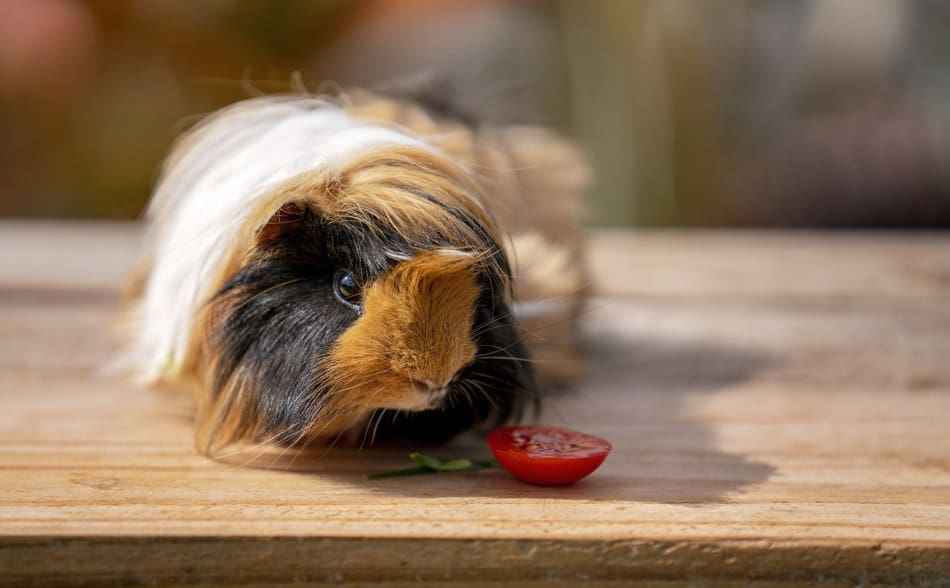
Potassium, on the other hand, is a great help to prevent premature calcification of the bones and in the development of bladder stones, being a very common disease among rodents.
On the other hand, tomatoes, no matter what they are, are a small source of fiber. The regular intake of vegetable fiber is vital for the proper functioning of the digestive tract, guinea pigs being very prone to suffer some common disorders such as diarrhea and constipation.
In addition, a diet rich in fiber will make you much stronger in every way, being a key element for the proper development and functioning of all your muscles and bones.
Last but not least, tomato contains 94% water in addition to a wide variety of antioxidant lycopenes. This is very good for combating premature aging of cells, as well as for improving the control of meals, providing a greater sense of satiety.
How often to feed tomatoes and how much?
Guinea Pigs cannot eat tomatoes every day, nor should we introduce them into their diet for the first time abruptly. These small rodents are very sensitive to changes and their gums tend to get irritated easily, so we should start serving them small pieces of tomatoes along with their usual food until you have got used to them.
Otherwise, we could cause a disturbance of your digestive system that is highly susceptible to changes, and begin to observe symptoms such as acute diarrhea.
You will need to serve a small portion equivalent to the size of a cherry tomato or a slice of a large tomato. In addition, it will always be preferable to give it to you in pieces so that you can chew them more easily and have no problem swallowing.
PLEASE NOTE: You must remove the vine stem and leaves from the tomato before feeding to your pet guinea pig. These are extremely poisonous to guinea pigs.
Uneaten tomatoes should be removed within an hour of feeding them to your guinea pig. Tomatoes and other soft fruits attract fruit flies and other germ-spreading insects and you want to avoid your piggies eating any tomato or other foods that have been contaminated by these creatures.

What are the risks of feeding tomatoes to Guinea Pigs?
Leaves
Before serving the tomato to our pet we must be sure to carefully remove any leaf or part of the stem, as its intake can become very toxic for both animals and people. The tomato plant belongs to the Solanaceae species, containing in its stem and its leaves chemical agents called alkaloids tomatine and solanine.
Although a very small portion will not have much effect, it is best to try to avoid at all costs that our guinea pigs can be eaten by mistake some leaf or branch.
Allergic Reactions
Guinea pigs have been allergic to tomatoes, presenting symptoms such as a noticeable swelling of the mouth and throat. As soon as you notice any of these symptoms, you should quickly give your Guinea Pig water and remove the food until he starts to feel better.
If you see symptoms worsen with the passing of the hours, do not hesitate to take it to the nearest emergency veterinarian.
Don’t overfeed them tomatoes
It is important never to exceed the recommended daily dosage of tomatoes for our guinea pigs, otherwise, they could suffer from diarrhea or the appearance of annoying mouth ulcers.
These pets do not have the capacity to control food intake, that is, they do not know when it is enough and could spend hours eating non-stop until they explode. That is why we must be very responsible and keep a very close watch on their whole diet.
Green tomatoes
We explained throughout the post that guinea pigs can eat all kinds of tomatoes and that they would preferably be quite ripe rather than soft. This does not mean that we should give them fully green tomatoes, as, like their leaves, these unripe tomatoes also have toxic chemicals that are equally detrimental to their intestinal health.

For more information on Guinea Pig diet click here!
Conclusion: Can Guinea Pigs eat Tomatoes?
As you can see there are many benefits of feeding Tomatoes to your pet Guinea Pig. However, there are some precautions you’ll need to take.
Remember all fruits and vegetables are a supplement to your regular food and should not be relied upon as a sole source of diet.
Below are some options for a staple diet to be feed to your Guinea pig daily.








